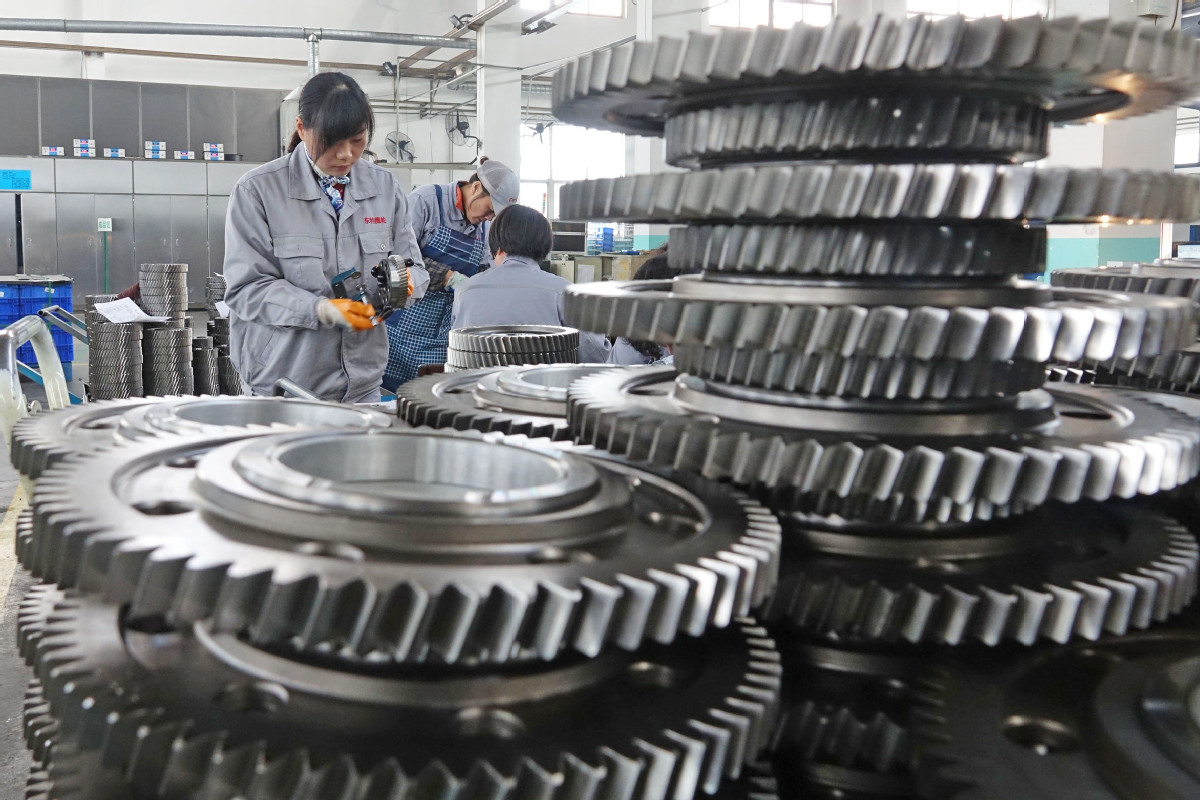 An employee checks gear products at a machinery company in Yantai, Shandong province. CHINA DAILY
An employee checks gear products at a machinery company in Yantai, Shandong province. CHINA DAILY
Fresh growth momentum to help nation offset growing downside risks, say analysts
The official manufacturing purchasing managers' index narrowed to 50 in November, the benchmark separating expansion from contraction, according to data released by the National Bureau of Statistics on Friday.
Analysts attributed the slide partly to downside risks escalating worldwide, but highlighted signs of new growth momentum to help the Chinese economy withstand uncertainties.
The manufacturing PMI reading, which forecasts the economic health of the country's manufacturing sector, fell for a third straight month to 50 in November, the lowest since July 2016 and down from 50.2 in October.
Subindices of production and new orders, or those with the heaviest weightage in the PMI, edged down to 51.9 and 50.4, respectively.
"Due to recent dros in prices of bulk commodities and other factors, indices for purchasing prices of major raw materials and for ex-work goods shrank to the lowest this year," said NBS senior statistician Zhao Qinghe, citing price slides as a major drag to the PMI reading.
The former slumped by 7.7 percentage points month-on-month to 50.3 in November, and the latter was weakened by 5.6 percentage points to 46.4, the bureau said.
Liu Chunsheng, associate professor at the Central University of Finance and Economics, said the fall in prices of bulk commodities showed global investors' weak sentiment amid uncertainties and continued downside economic pressure.
Data released last week indicated that the global economy faces a disappointing end to the year. The flash IHS Markit manufacturing PMI of the eurozone fell to 51.5 in November, the lowest since May 2016, while that of the United States slowed to 55.4 from 55.7 in October. The flash Nikki Japan manufacturing PMI also fell to a two-year low of 51.8.
"The economy faces downside pressures from both external uncertainties and domestic restructuring, " said Liu, adding the precarious PMI reading means more fiscal and monetary stimulus is very likely in the pipeline.
"On the other hand, efforts to develop new growth momentum are bearing some fruit, as shown by accelerating expansions in high-end manufacturers and the services sector," Liu added.
Sub-PMI of equipment and high-tech manufacturing rose by 0.6 and 0.1 percentage point month-on-month to 50.5 and 51.7 in November, respectively, according to the NBS. It also said sub-PMI of the services sector came in at 52.4 in November, 0.3 percentage point higher than the previous month.
"Fueled by the Double 11 online shopping festival, businesses of delivery services, telecommunications, and internet software notched a rapid growth in November, with their subindices reported at more than 56," said Zhao from the NBS. The country's financial sector also registered solid growth, lifting subindices of the banking, securities, and insurance industries up to more than 60, he added.
China's non-manufacturing PMI moderated to 53.4 in November, down 0.5 percentage point from October but remaining at solid levels, official data said.

